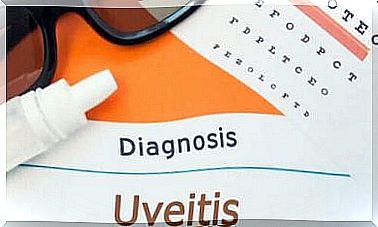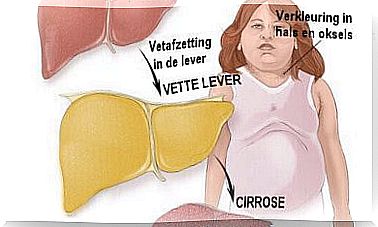What You Need To Know About The Ketogenic Diet And Its Risks

The ketogenic diet, or keto diet, is a very low-carb diet that turns the body into a fat-burning machine. It is said to have potential benefits for vision loss, health and athletic performance. In addition, there are millions of people who claim to have experienced benefits.
However, this type of diet can put your health at serious risk. Keep reading to learn more about this topic.
What is the ketogenic diet?
The ketogenic diet is a diet that reduces or eliminates carbohydrates. This forces the body to go into ketosis. This allows for weight loss when using fat as an energy source.
Ketosis is a metabolic state in which the body no longer receives carbohydrates as the primary source of glucose for energy production. Therefore, it is forced to get energy from the metabolism of fat.
When we deprive the body of carbohydrates, it uses the glycogen stored in the liver as its first resource. When that is consumed, the body begins to consume fatty acids, converting them into ketone bodies. However, their massive releases can be dangerous for the body.
The diet

The proportion of carbohydrates in a ketogenic diet is usually well below the recommendation of 50% to 60% of the total number of calories. In general, it provides 10% or less of the recommended energy in the form of carbohydrates.
There are ketogenic diets where you can eat fruits and vegetables in very controlled amounts. However, other varieties eliminate all sources of carbohydrates, prohibiting the intake of grains, flours, baked goods, as well as fruits, vegetables and legumes.
In addition, there are ketogenic diets that use fasting to promote the initial formation of ketone bodies. This must then be sustained to achieve weight loss at the expense of the major oxidation of fats.
As you can see, there are many types of ketogenic diets and all of them have the ultimate goal of promoting fat burning in the body to later create ketone bodies in our body. However, there are also many risks to these types of diets.
The risks of the ketogenic diet
1. It reduces your consumption of healthy fruits and vegetables

Since most ketogenic diets minimize the consumption of fruits and vegetables, the body is not getting enough vitamins, minerals and fiber. This could be solved by taking a vitamin supplement as a supplement.
2. It reduces fiber consumption
If you eat so little fiber, another consequence is constipation. That is why we recommend drinking certain infusions that have a laxative effect, such as mallow.
3. It Can Cause Bad Breath

It is also common that you suffer from bad breath, or halitosis, due to the high production of ketone bodies. Some studies also suggest that this type of diet can increase feelings of fatigue due to the lack of carbohydrates in the diet.
4. This Diet Could Lower Your Cognitive Levels
Because the brain has to use ketone bodies to replace glucose, the fuel of choice, cognitive performance can be affected, as shown by some American scientists.
5. The ketogenic diet is hard to follow
Further, while some people say this diet is easier to follow than non-ketogenic diets, studies show the opposite.
Because if you follow the diet you cannot eat popular foods such as breakfast cereals, bread, vegetables, fruits and legumes, it is very difficult to stick to this diet.
6. It Can Cause Ketoacidosis
In extreme cases, this diet can lead to ketoacidosis if the ketone bodies are greatly elevated in the blood. This can cause damage to certain organs and even lead to a coma.
To follow this type of diet, it is therefore essential to have a good health history and regular doctor visits. If you have kidney or liver failure, you can get serious problems if you follow this diet.
Warning
In addition to the inherent drawbacks of this diet, some at-risk groups are more vulnerable than others:
- People with liver or heart problems, as this can cause the development of arrhythmias in some cases.
- Pregnant or breastfeeding women.
- People with kidney failure.
The ketogenic diet is not a diet that you can follow for the rest of your life or that promote healthy habits. It does not provide a balanced diet, but rather proposes an occasional and temporary alternative to lose weight and lose fat.
Finally, remember that for any nutritional regimen you will be following, it is important to see a specialist, who will assess your current health status and progress.









